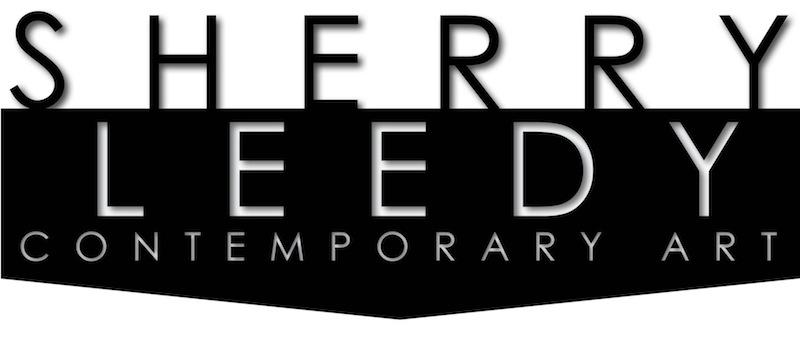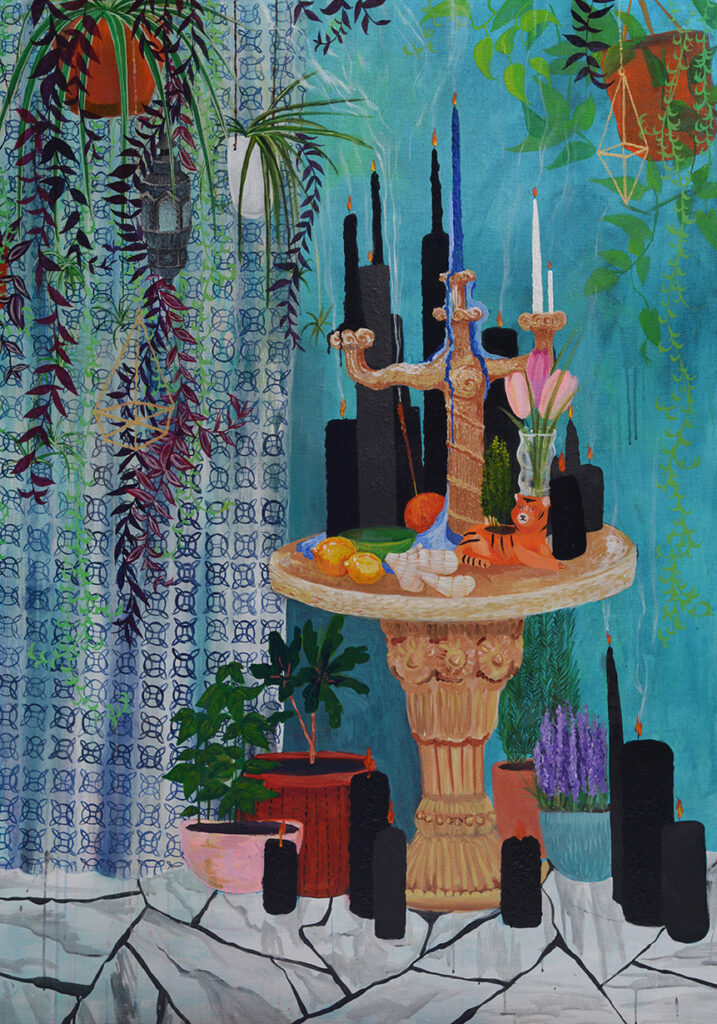Offerings: Artist Statement
In this series, I am thinking a lot about cycles and seasons, milestones, and ritual. How do we mark time, what do we celebrate. Why do certain gestures – like lighting a candle, seem to give importance to a moment? Many of these traditions are residual echoes from practices that were obscured and absorbed into patriarchal monotheistic religions to create palatable vehicles for control and power. While I personally do not cosign the dogma associated with these religions, I do recognize the power they hold and the impact the ritual and beauty has on people. I believe the impact of that ritual and beauty can exist in a space without dogma, without narratives of Gods and Monsters. These paintings are meditations in that space, offerings of intent and reflection.
I am also considering the oppression of the feminine – feminine gesture, feminine aesthetic, vulnerability, compassion, emotion. I think about women in history – in art history, in history writ large, whose work enthralls but whose stories trouble me. I think about Ana Mendieta, Zelda Fitzgerald, Henrietta Lacks, Sylvia Plath, Hilma af Klint. I think about the way I operate in the world and how long it took for me to understand how recently the freedoms I have now came to be. I consider how long it took for me to understand the barriers that still exist, perhaps better cloaked than before. I think about how many times I changed my natural inclinations or desires to fit what I thought others wanted – and by others I mean white, cis, heterosexual, men in places of decision making power. I think of how many times that worked, and I cringe.
For this reason, I embrace aesthetics and ways of mark-making that have not held the same esteem as others in the Euro-centric fine art canon that I know. I embrace folk art influences, that came from decorative practices that were the beautiful and laborious creative acts of anonymous women (including my own mother, grandmother, and great-grandmother). I embrace the color pink. I embrace nods to cake decorating, flower arrangement, quilt making, textile pattern and surface design, object collections, and the aesthetics of domestic spaces. I see these gestures as a sort of inheritance, from women in my own lineage living less than glamorous lives, attempting to bring light and beauty to the world in the practical ways the social and economical boundaries permitted.
Altars are created to manifest action, to create change, or to remember, to honor. My altars are no different, in that regard. They are pools of reflection, of meditation, of thinking about the way things are and the way I want to operate as a human moving forward.
-Amy Kligman, 2023

